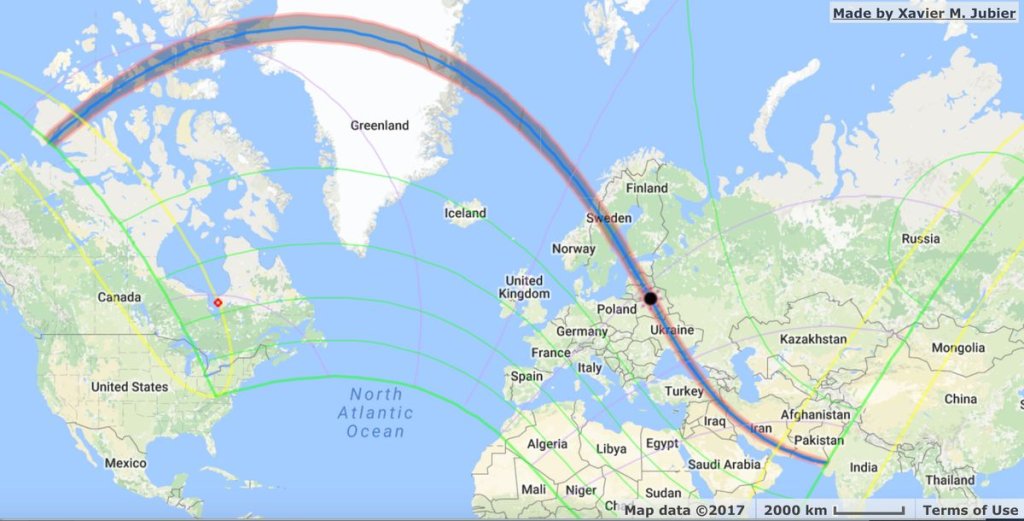
On This Day In Space: Aug. 21, 1914: Total solar eclipse expedition crashed by World War 1 (Image Credit: Space.com)
On Aug. 21, 1914, a total solar eclipse temporarily darkened skies across Europe and Asia. A young German astronomer and friend of Albert Einstein’s, Erwin Finlay-Freundlich, led an expedition to the Crimean Peninsula of Russia, where he hoped to record observations that would verify Albert Einstein’s general relativity theory.
Related: How a Total Solar Eclipse Helped Prove Einstein Right About Relativity

This theory predicted that the light from distant stars appearing very close to the sun’s edge should shift due to the curvature of space. Those stars would only be visible during a total solar eclipse, when the moon blocks out the sun’s bright light. Unfortunately, the start of World War I just 20 days before the eclipse foiled the expedition. After Germany declared war on Russia, Freundlich and his colleagues were captured by the Russian army and their equipment was confiscated.
After the war, a solar eclipse on May 29, 1919 was used to confirm Einstein’s theory of relativity, so the experiment was ultimately a success.
On This Day in Space Archive!
Still not enough space? Don’t forget to check out our Space Image of the Day, and on the weekends our Best Space Photos and Top Space News Stories of the week.
Follow us @Spacedotcom and on Facebook.





